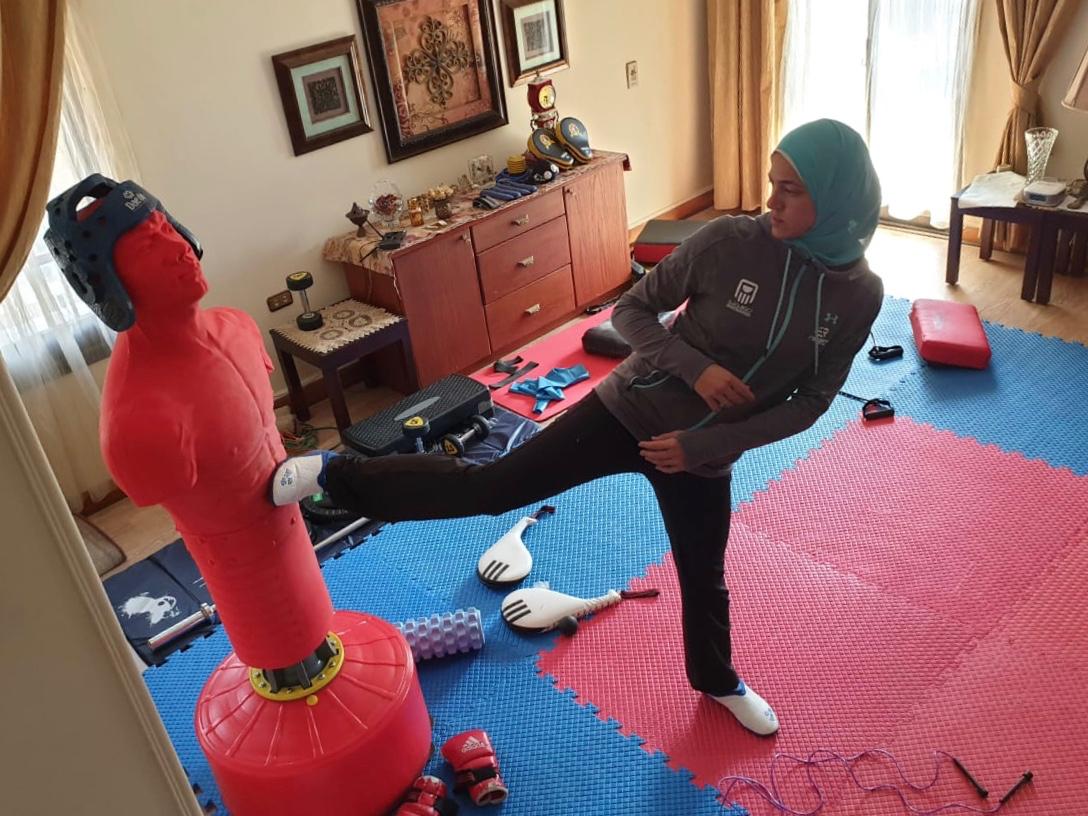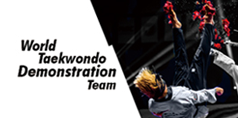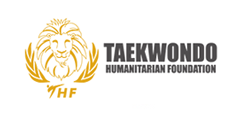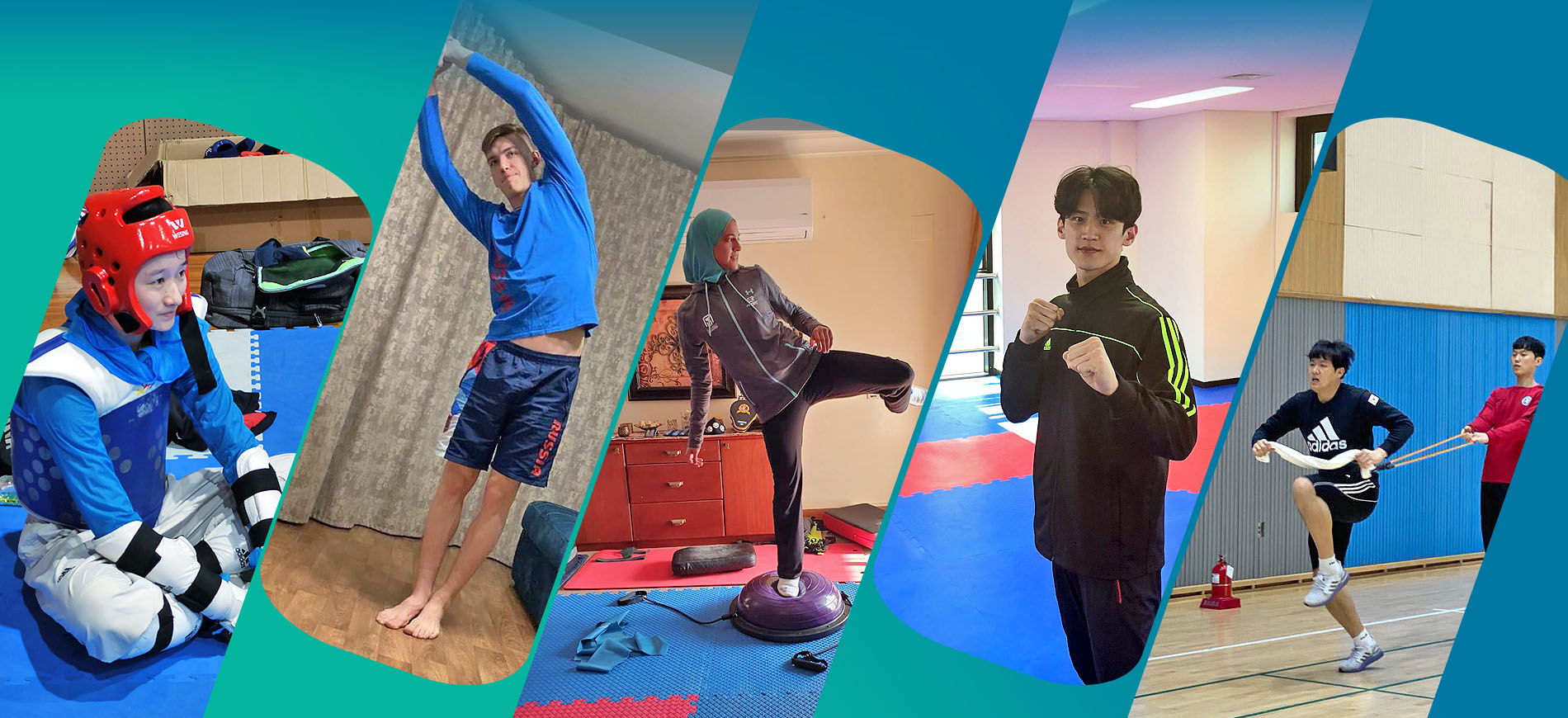Taekwondo’s Elite Talk Training in the Time of Covid-19
All your life you have been preparing for the ultimate challenge. Your training is nearing its end, your body and mind are honed to a peak efficiency. You are good to go.
Then something that has never happened before happens. Suddenly everything you have prepared for changes.
This is the situation facing taekwondo’s elite combatants in the wake of the IOC’s decision to postpone the Tokyo 2020 Olympics for a year – a decision forced by the novel coronavirus and its associated disease, Covid-19.
As the world struggles to contain the outbreak, these athletes face the Herculean task of having to peak all over again this time next year. Before that, they must face the ongoing uncertainties and inconveniences that lockdowns and social distancing demand – while also maintaining their form as taekwondo athletes.
Still, they are facing it with fortitude.
“We don't want to see it being postponed, but for the sake of our health and safety, I think we should accept it,” said taekwondo legend and double Olympic gold medalist Jingyu “Superkicker” Wu of Team China. “My four-time Olympic preparation experience tells me, we must have patience and confidence. The haze will pass - victory belongs to persistent people!”
Staying strong
Some are looking on the bright side. The extra year of training, some say, means they can add perfection to the peak form they have already attained.
“I am preparing for the 2020 Tokyo Olympics - as always!” said Team Korea’s multiple world champion and Grand Prix gold medalist Dae-hoon Lee, who owns one of the most admired skillsets in the sport. “I can get one year more of preparation! I want to systematically improve my physical strength, skills, flexibility and so on.”
 Naturally, the urge of these tigerish young athletes to to work out is strong. Egypt’s Hedaya Malak a Rio 2016 bronze medalist and Grand Prix gold medalist, is in home lockdown, but is still in training.
Naturally, the urge of these tigerish young athletes to to work out is strong. Egypt’s Hedaya Malak a Rio 2016 bronze medalist and Grand Prix gold medalist, is in home lockdown, but is still in training.
“In the mornings, mostly it is strength and muscle weight training, or high intensity fitness and cardio” she said. “In the afternoon, I train with my brothers who have been part of my training for many years. We spend a total of three to four hours per day training.”
Though she cannot meet her coaches, they send her online instructions and training videos; she sends hers to team mates, “so that we can motivate each other.”
Lee, and team-mate Kyo-don In, are fortunate: Korea has not gone into lockdown, but the two have not been able to train with the national team at the Olympic Training Center. Instead, they are training separately with their local home teams. And that creates some unusual situations. “I can exercise - but only with social distancing,” In said.
 One of the most entertaining and popular fighters in the game is Russia’s World Champion Maksim “Red Machine” Khramtcov. Though locked down, “I let myself go to my parents for dinner!” he said.
One of the most entertaining and popular fighters in the game is Russia’s World Champion Maksim “Red Machine” Khramtcov. Though locked down, “I let myself go to my parents for dinner!” he said.
Training, however, is tough: His coach lives in a different city and he has no training partner.
“I prepare in the same manner as before, certainly not in the sports hall, but at home, even if it is uncomfortable,” he said. “My recommendations for home training are first of all a good warm-up, as well as general physical training, to maintain your regime, to get up and eat at the same time – and eat healthy food.”
Rio 2016 gold medalist Ahmad “The Desert Wolf” Abughaush has found himself stranded overseas by the pandemic.
“We had been in Russia for a training camp since March 9, and Jordan locked down on March 17,” he said. “Before that, we had the option to go back or stay here, and coach decided to stay here and continue our preparations because of the stable situation in the camp city here - but now the city here is also locked down.”
The upside is that – with nothing else to do – it is all taekwondo.
“Since we are in a quarantine in the same hotel with my colleagues and coaches, we still train inside our hotel,” he said.
To be continued....



































